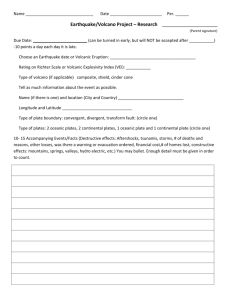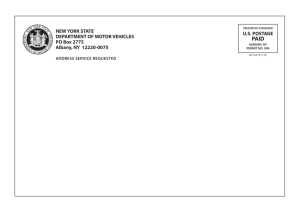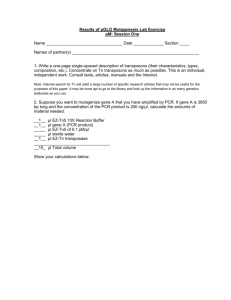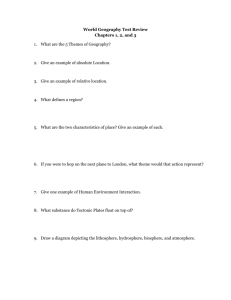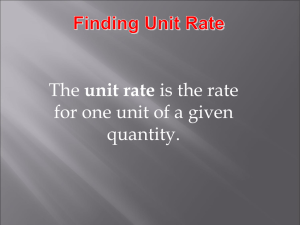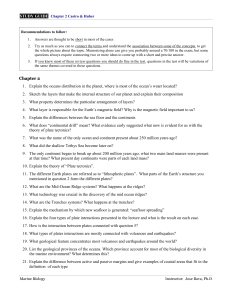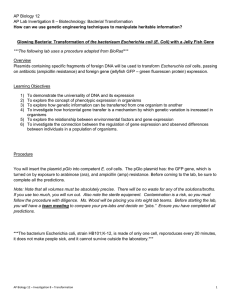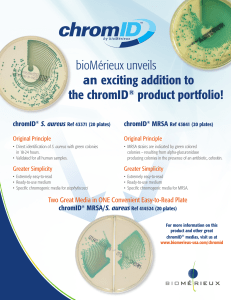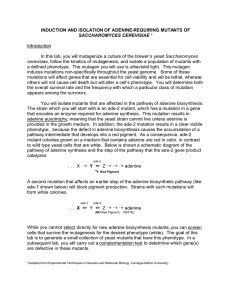RDM Day 4 Interpretation Questions and Answers 1.
advertisement
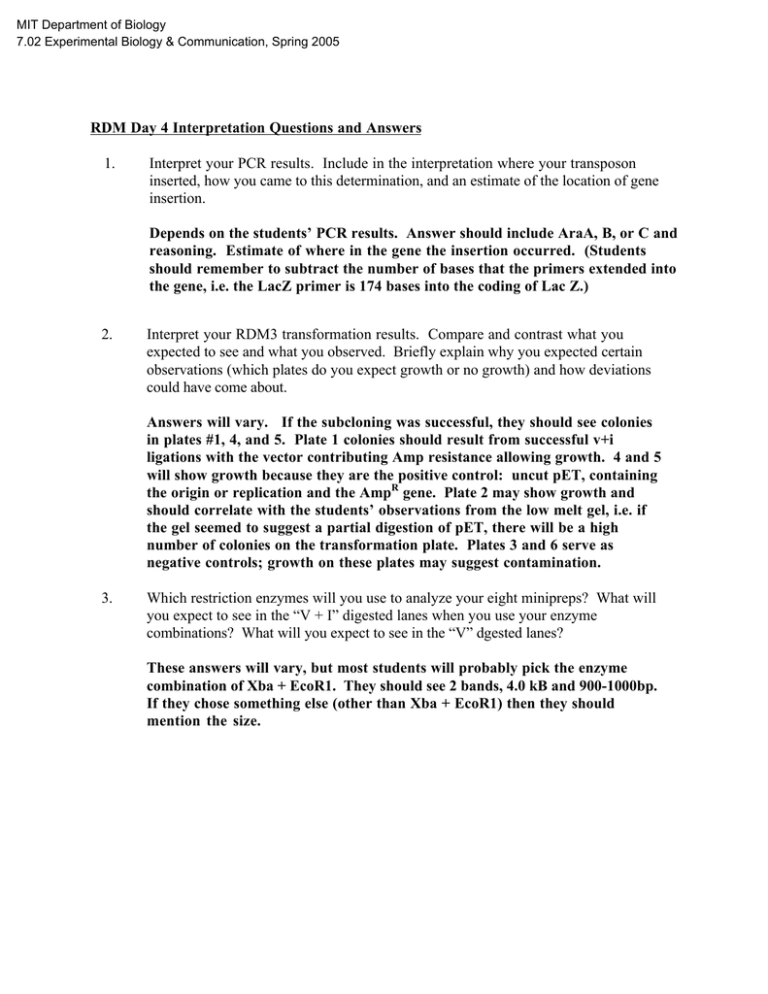
MIT Department of Biology 7.02 Experimental Biology & Communication, Spring 2005 RDM Day 4 Interpretation Questions and Answers 1. Interpret your PCR results. Include in the interpretation where your transposon inserted, how you came to this determination, and an estimate of the location of gene insertion. Depends on the students’ PCR results. Answer should include AraA, B, or C and reasoning. Estimate of where in the gene the insertion occurred. (Students should remember to subtract the number of bases that the primers extended into the gene, i.e. the LacZ primer is 174 bases into the coding of Lac Z.) 2. Interpret your RDM3 transformation results. Compare and contrast what you expected to see and what you observed. Briefly explain why you expected certain observations (which plates do you expect growth or no growth) and how deviations could have come about. Answers will vary. If the subcloning was successful, they should see colonies in plates #1, 4, and 5. Plate 1 colonies should result from successful v+i ligations with the vector contributing Amp resistance allowing growth. 4 and 5 will show growth because they are the positive control: uncut pET, containing the origin or replication and the AmpR gene. Plate 2 may show growth and should correlate with the students’ observations from the low melt gel, i.e. if the gel seemed to suggest a partial digestion of pET, there will be a high number of colonies on the transformation plate. Plates 3 and 6 serve as negative controls; growth on these plates may suggest contamination. 3. Which restriction enzymes will you use to analyze your eight minipreps? What will you expect to see in the “V + I” digested lanes when you use your enzyme combinations? What will you expect to see in the “V” dgested lanes? These answers will vary, but most students will probably pick the enzyme combination of Xba + EcoR1. They should see 2 bands, 4.0 kB and 900-1000bp. If they chose something else (other than Xba + EcoR1) then they should mention the size.
